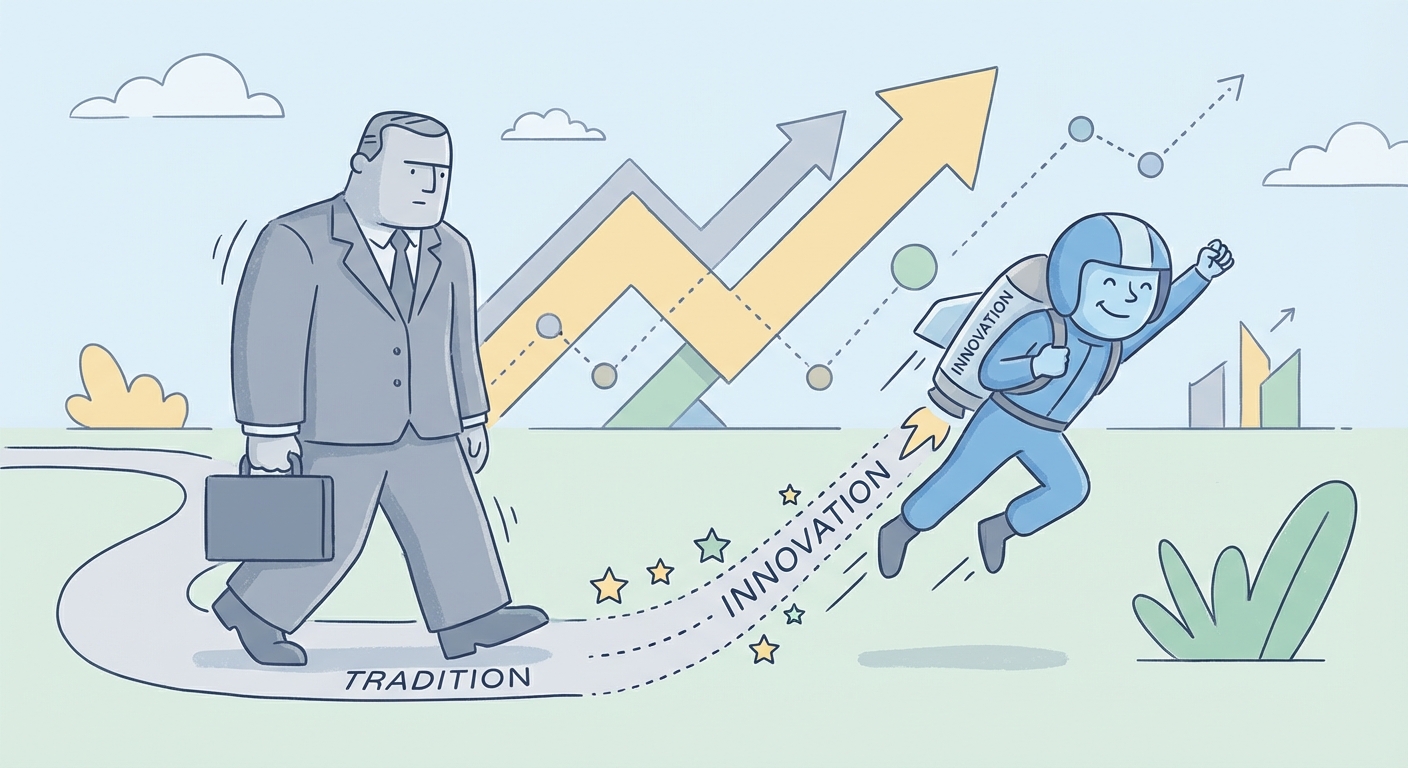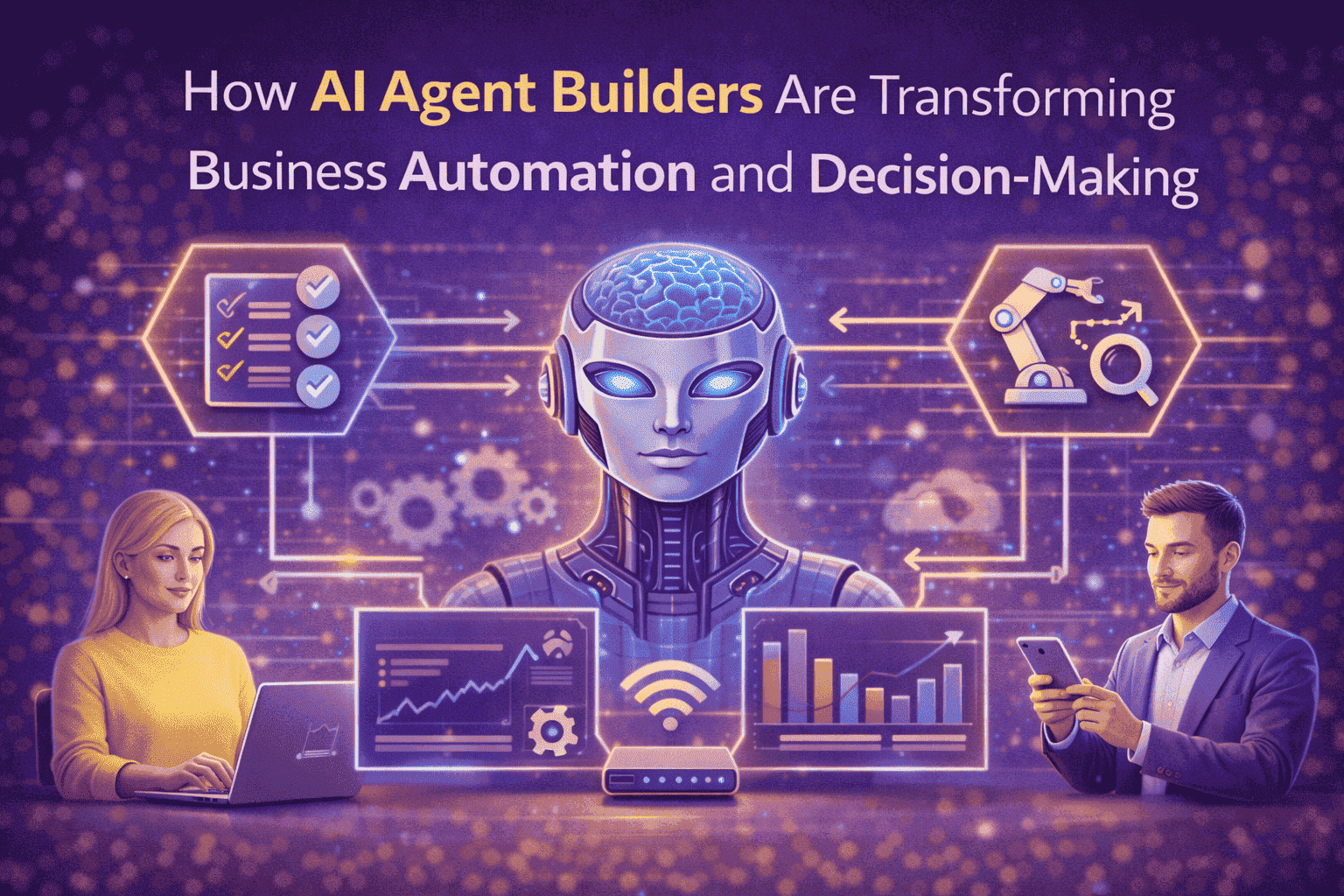Leveraging Generative AI for Growth Hacking: Insights for Startups

TL;DR
- This article explores how startups can use generative AI tools to accelerate growth. It covers practical applications like content creation, pSEO, personalized marketing, and automation, with a focus on B2B SaaS and cybersecurity. We also look at the ethical considerations and strategic frameworks important for responsible growth with AI, while giving you real-world examples.
Introduction: The Generative AI Revolution in Startups
Isn't it kinda wild how startups are using ai now? It's not just sci-fi anymore, its changing the game, specially for smaller teams.
Here's the deal:
Speed and Efficiency: Generative ai isn't just about making things faster, its about compressing timelines. Like, according to Inside the ai Revolution: How Startups Are Hacking Growth with Generative Tools | Technology, some startups are building mvps in weeks instead of months. That's huge!
Personalization at Scale: Forget generic marketing. ai lets you tailor every message, making customers feel, you know, seen, like with personalized product recommendations or dynamic website content.
Operational Overdrive: It's not just customer-facing stuff; ais helping with market research and even legal paperwork. boring stuff made easy!
This article will explore the practical applications of generative ai for startup growth, dive into specific strategies for B2B SaaS, touch on cybersecurity applications, discuss strategic frameworks, and navigate the associated risks.
Unlocking Growth: Practical Applications of Generative AI
Okay, so you're probably wondering, how can ai actually help my startup grow? It's not just about buzzwords, right? Let's get into some real-world applications that could seriously change your game.
Automated blog generation for pSEO: Imagine pumping out hundreds of blog posts, all optimized for search engines, without killing your content team. ai can do that. It can research keywords, generate outlines, and even write entire articles. Think about how much time that saves!
Creating engaging social media content variations: Tired of staring at a blank screen trying to come up with a new tweet? ai can spin one idea into dozens of variations, tailored for different platforms. No more social media burnout!
Repurposing content across multiple platforms: Turn a blog post into a series of LinkedIn updates, a short video script, and an infographic outline - automatically. Use an AI PDF to video converter to transform written materials into engaging videos and maximize your content's reach without extra effort.
Generating personalized email sequences: Forget generic email blasts. ai can create hyper-personalized email sequences based on customer data, increasing engagement and conversions. It's like having a personal marketing assistant for every customer.
Creating targeted ad copy variations: ai can generate hundreds of ad copy variations, testing different headlines, descriptions, and calls to action to find the perfect combination. No more guessing which ads will perform best.
Dynamic landing page content based on user behavior: Imagine a landing page that changes based on where the user is coming from, what they've looked at before, and their past behavior. ai can make that happen, delivering a truly personalized experience.
Identifying high-potential keywords with ai: Forget manual keyword research. ai can analyze massive datasets to identify untapped, high-potential keywords that your competitors are missing. (Advanced Keyword Research for SEO in 2025: A Technical Guide)
Generating seo-optimized content briefs: ai can create detailed content briefs, outlining exactly what to write about, which keywords to use, and how to structure the content for maximum search engine visibility.
Automating meta description and title tag creation: ai can generate compelling meta descriptions and title tags that entice users to click through from search results. It's like having an seo expert on autopilot.
Automating customer support with chatbots: Free up your support team by using ai-powered chatbots to handle common customer inquiries. These bots can provide instant answers, resolve simple issues, and escalate complex problems to human agents.
Generating documentation and training materials: ai can generate clear, concise documentation and training materials, saving time and ensuring consistency.
Parsing legal documents and extracting key information: In legal and fintech sectors, startups are deploying ai to parse lengthy regulatory documents and generate actionable summaries, dramatically reducing human workload, according to Inside the ai Revolution: How Startups Are Hacking Growth with Generative Tools | Technology.
These are just a few examples of how generative ai can unlock growth across various business functions. The following sections will delve into more specific applications, starting with the unique challenges and opportunities within B2B SaaS.
Growth Hacking in B2B SaaS: Specific AI Strategies
AI's changing everything, right? But how does it specifically help B2B SaaS companies grow, especially with stuff like lead generation, onboarding, and keeping customers happy? Turns out, there's a bunch of cool strategies.
Lead Generation: Forget just buying lists. ai can analyze customer data to figure out who's actually a good fit for your product. Think about it: ai sifting through tons of data points to pinpoint potential leads that look just like your best customers. This could include firmographics (company size, industry), technographics (software they use), engagement history with your content, and website behavior. Then, it can automate personalized outreach – no more generic emails!
Customer Onboarding: Nobody likes clunky onboarding. ai can create personalized flows based on user segments. imagine a new user gets a walkthrough tailored to their specific role and needs. Plus, ai-powered chatbots can handle common support questions, so your team isn't bogged down with the basics.
Retention and Upselling: Losing customers sucks. ai can identify those who are at risk of churning by spotting patterns in their usage. Then, it can suggest personalized upsells or cross-sells based on their behavior. Think "Hey, you're using feature X a lot, have you thought about upgrading to get feature Y?"
So, how does this practically work? Let's say you're selling a marketing automation platform. ai could analyze a lead's website, social media activity, and past interactions with your company to determine their lead score. high score? Sales gets notified immediately.
Next up, let's look at some ai-driven content ideas that can seriously boost traffic, even in the cybersecurity space.
Cybersecurity Growth Hacks with Generative AI
Cybersecurity can feel like a never-ending arms race, right? Well, generative ai might just give the good guys a serious edge, especially for startups who are usually outgunned.
Here's how ai can help level the playing field:
Threat Intelligence on Steroids: Forget manually sifting through threat reports. ai can monitor the threat landscape, identifying emerging threats way faster. Think of it as having a tireless security analyst constantly on the lookout. Plus, it can automate vulnerability scanning and create custom threat reports tailored to your specific setup.
Security Awareness Training That Doesn't Suck: Let's be honest, most security training is boring. ai can generate personalized modules that are actually engaging, simulating phishing attacks and analyzing user behavior. No more death-by-powerpoint!
Incident Response Automation: ai can power Security Information and Event Management (siem) systems, automating incident analysis and triage. So, when something does go wrong, ai can help you figure out what happened and how to fix it faster.
Imagine a healthcare startup using ai to analyze patient data for anomalies that might indicate a cyberattack, or a retail company using ai to detect fraudulent transactions in real-time. This isn't just about protecting data, its about protecting your company's future.
Ready to see how ai can boost your content strategy? Let's dive in!
Strategic Frameworks for AI-Powered Growth
Okay, so you're probably thinking, "Strategic frameworks? Sounds kinda boring, right?" But trust me, it's about giving your ai growth hacking some structure. Otherwise, you're just throwing stuff at the wall and hoping something sticks.
Think of it like this: ai isn't a one-size-fits-all solution. What works for an mvp might not work when you're scaling. To help navigate this, we can consider frameworks that map ai use cases to different stages of growth and build internal capabilities.
For mapping use cases to growth stages, think of a conceptual ai Wheel. This framework helps visualize how different ai applications can support your startup at each phase of its journey.
mvp Development: ai can help you build and test your mvp faster. As mentioned earlier, some startups are using ai for mvp development to compress mvp timelines from months to weeks.
Product-Market Fit: ai can analyze user data to help you understand what features are resonating and what aren't. This way, you can iterate more quickly and find that sweet spot.
Scaling: ai can automate tasks, personalize marketing, and improve seo. It's all about doing more with less.
So, you're sold on ai, but where do you even start? A ai Capabilities Framework can provide a step-by-step approach to building internal expertise. It's about starting small, learning as you go, and creating a culture of ai experimentation.
Explore Basic Features: Start with the basics, like using ai to generate blog posts or social media content.
Refine Prompt Engineering Skills: This is where you learn how to get the most out of ai tools. It's about understanding how to write effective prompts that generate high-quality results.
Create a Culture of Experimentation: Encourage your team to experiment with ai tools and share their findings. This is how you build a culture of continuous learning and improvement.
Next, let's talk about how to measure the impact of your ai-powered growth hacks, cause if you aren't measuring, what are you even doing?
Measuring the Impact of AI-Powered Growth Hacks
It's all well and good to implement these fancy ai tools, but how do you know if they're actually working? You gotta measure it, right?
Define Clear KPIs: Before you even start, figure out what success looks like. Are you trying to increase website traffic? Boost conversion rates? Reduce customer support tickets? Set specific, measurable, achievable, relevant, and time-bound (SMART) goals.
Track Key Metrics: Use analytics tools to monitor your progress. For content generation, track metrics like organic traffic, time on page, and conversion rates from blog posts. For lead generation, look at lead quality, conversion rates from ai-generated outreach, and cost per lead.
A/B Test Everything: Don't just assume your ai-generated content or ad copy is the best. Run A/B tests to compare different versions and see what resonates most with your audience.
Calculate ROI: Ultimately, you need to understand the return on investment for your ai initiatives. Compare the cost of the ai tools and any associated labor against the gains you've seen in revenue, efficiency, or other key metrics.
Without proper measurement, you're just guessing. Make sure you're tracking the right things to prove the value of your ai efforts.
Navigating the Risks: Ethical Considerations and Challenges
It's easy to get caught up in the excitement of ai, but what about the downsides, eh? Turns out, there's some pretty serious ethical stuff to think about.
Data Privacy is Key: You gotta protect user data like it's gold, especially with regulations like gdpr breathing down your neck.
Bias Can Creep In: ai models are only as good as the data they're trained on. If that data's biased, your ai will be too. For example, if a hiring ai is trained mostly on male resumes, it might overlook qualified women.
Transparency Matters: People deserve to know why an ai made a certain decision. Black boxes aren't gonna cut it.
Basically, using ai responsibly means thinking about the ethical implications from the get-go.
Conclusion: Embracing the Future of Growth with Generative AI
Generative ai represents a significant shift in how startups can achieve growth. It's not just hype; it's a powerful set of tools that, when used strategically, can drive real results.
Prioritize strategic ai integration over hype: Don't just jump on the ai bandwagon because everyone else is doing it. Think about how ai can genuinely solve problems for your startup. Maybe it's about automating customer support in your healthcare startup, or perhaps its about using ai to detect fraudulent transactions in your fintech company.
Invest in building internal ai expertise: You don't need to hire a team of data scientists overnight. Start small. Train your existing team on basic ai tools and prompt engineering. Encourage experimentation.
Embrace ethical considerations and responsible innovation: ai can be a powerful tool, but it's crucial to use it responsibly. This means thinking about data privacy, algorithmic bias, and transparency from the start.
Staying up-to-date with the latest ai advancements: ai is moving fast. Really fast. Make sure you're constantly learning and experimenting with new tools and techniques. Follow ai blogs, attend webinars, and connect with other ai enthusiasts.
Experimenting with new ai tools and techniques: Don't be afraid to try new things. There's a ton of ai tools out there, and new ones are popping up every day. The best way to learn what works for you is to experiment.
Adapting growth strategies to the evolving ai landscape: ai is changing the game, so your growth strategies need to adapt too. What worked last year might not work this year. Be flexible and willing to adjust your approach as ai continues to evolve.
It takes planning, expertise, and a commitment to responsible innovation. But if you get it right, the rewards can be huge.





